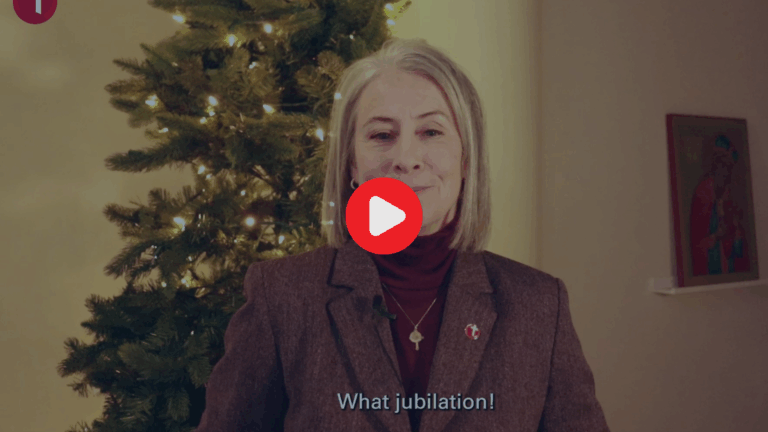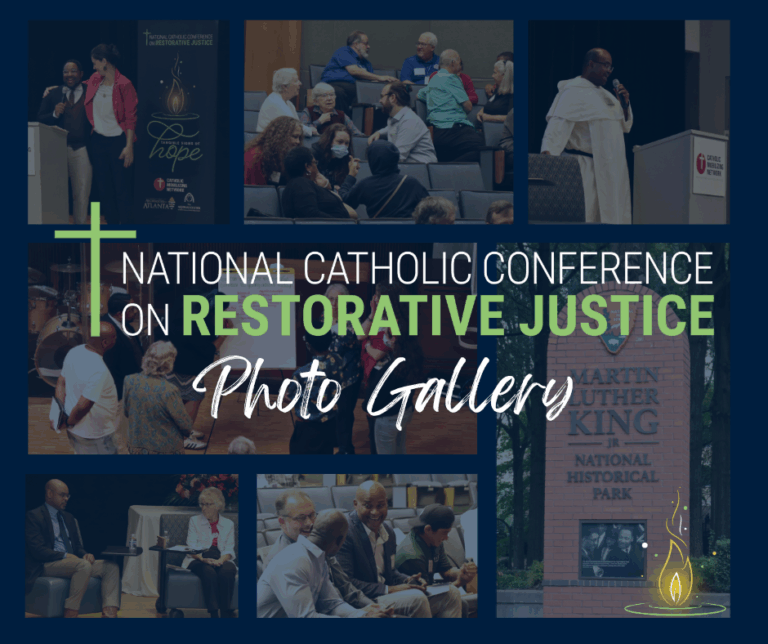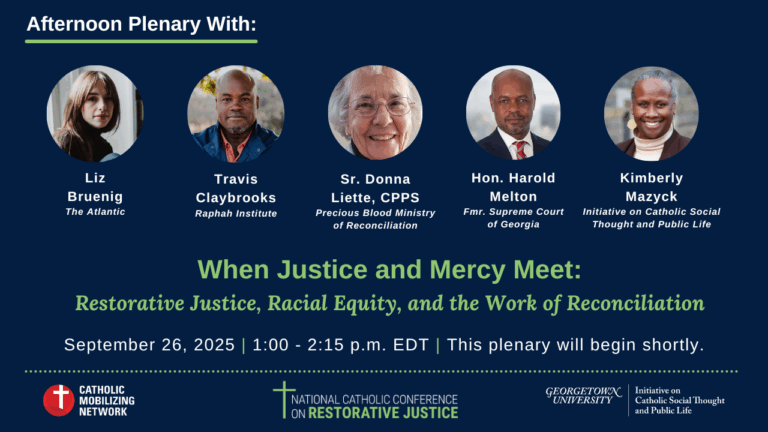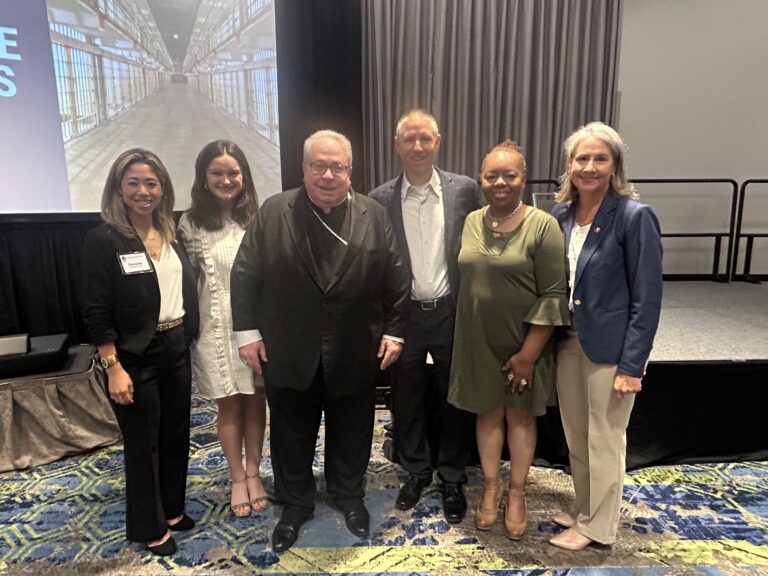Death Penalty Quarterly | July 2025
With a recent uptick in executions and states pursuing the use of capital punishment in new ways, understanding the deeper forces at play is more important now than ever.
2025 is a pivotal moment in the national conversation around the death penalty. On one hand, we’re seeing this troubling rise in executions from states across the country. At the same time, the Catholic Church has declared this a Jubilee Year — rooted in mercy, forgiveness, and the call to re-establish right relationships.
The Church’s Jubilee vision of hope stands in stark contrast to the reality we’re witnessing — and invites us to reflect more deeply and recommit ourselves to the work of justice.
Continue reading to learn more about the most significant developments we’re monitoring from the past quarter, key insights, and a bit about how CMN remains committed to the work of justice.
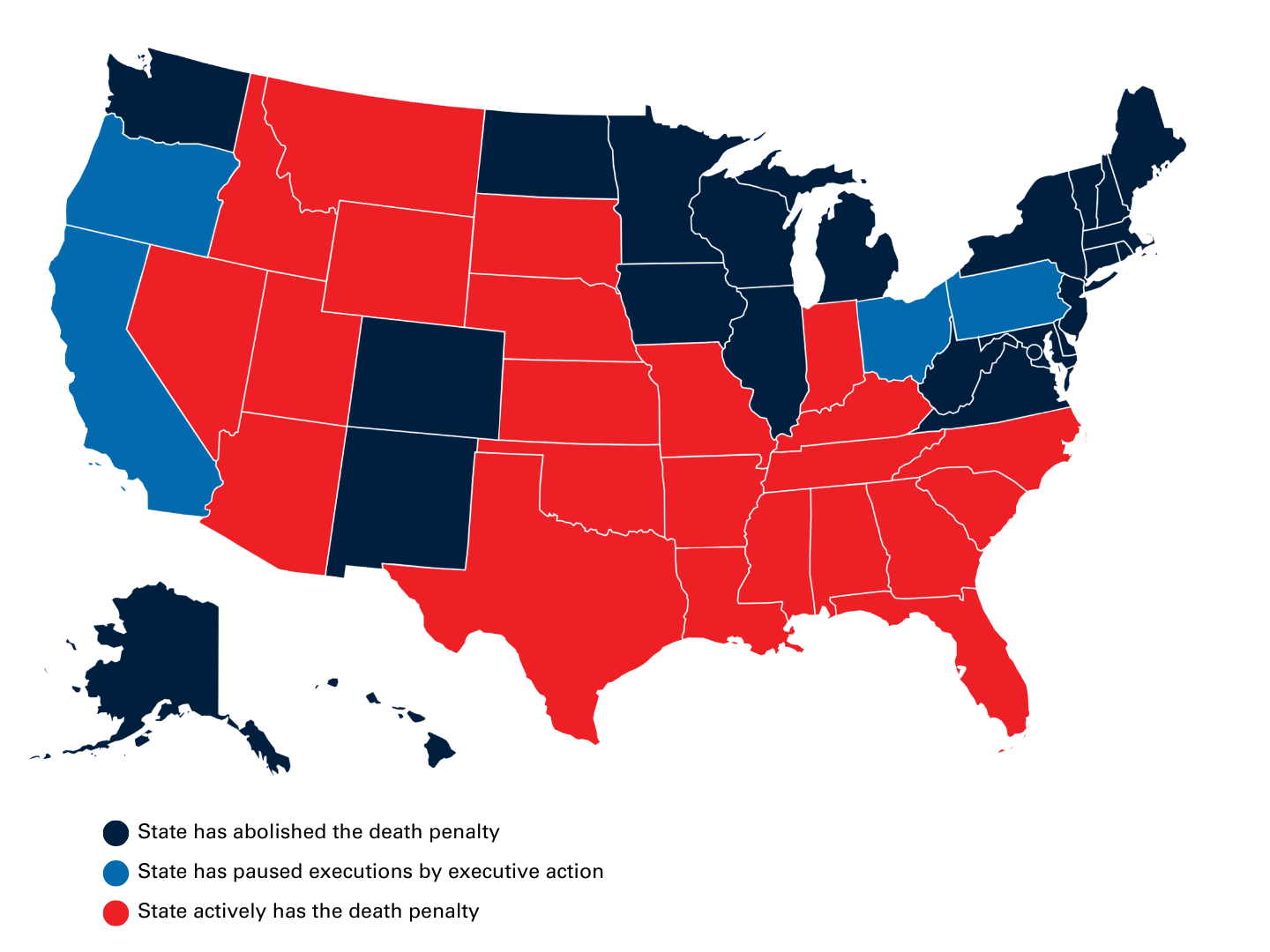
By the Numbers
23 non-death penalty states
27 death penalty states, 4 of which have paused executions by executive action
26 executions carried out so far in 2025 across 10 states
Tennessee and Mississippi resumed executions after a long pause
1,633 executions in the U.S. since 1978

2025 UPTICK IN EXECUTIONS
- In just seven months of 2025, 26 executions have been carried out — more than the total number of executions (25) for all of 2024.
- Ten states have carried out executions this year, matching the number from 2024. In 2023, only five states were actively executing.
- Notably, Florida alone accounts for 30% of this year’s executions.
The uptick in execution activity signals a renewed push for the death penalty in parts of the country — despite the fact that new death sentences remain at historic lows and national polls show Americans are growing less supportive of the practice. In November 2024, Gallup’s Annual Crime Survey reported death penalty support was at just 53% across the country, the lowest it’s been since the 1970s.
New Death Sentences
While the death penalty remains a grave reality in our country, there are signs of hope — particularly that new death sentences continue to remain near historic lows.
- 10 people in six states have been sentenced to death so far in 2025, compared to last year’s pace of 14 new death sentences in the first half of 2024.
- That’s a 30% decrease over the same period of time.
- Regrettably, two new death sentences from Alabama were handed down after a non-unanimous jury vote during the sentencing phase of the trial. With each case, only 10 out of the 12 jurors voted for death.
- Alabama and Florida are the only two states that allow non-unanimous juries to impose sentences of death.

BOTCHED EXECUTIONS
During the past quarter, two executions were contested by experts to have been botched. Botched executions are considered to be those which deviate from the protocol or expected procedures of an execution and/or cause unanticipated problems or delays that result in added agony for the person being executed.
The death penalty continues to prove it’s a broken system, with botched executions causing needless suffering, and states hiding what really happened behind closed doors.
- Mikal Mahdi (South Carolina): Following Mikal Mahdi’s firing squad execution on April 11, a pathology report highlighted two problems: (1) Mr. Mahdi had only two wounds as opposed to the anticipated three wounds from the three South Carolina Corrections Department Shooters, and (2) that these wounds missed the intended target over his heart, prolonging his death. On May 8, Mr. Mahdi’s lawyers submitted this report to the South Carolina Supreme Court.
- Benjamin Ritchie (Indiana): According to defense counsel and two other witnesses, Benjamin Ritchie exhibited violent and physical movements after the lethal drug was administered to him during his May 20 execution. These violent movements are not expected under the state’s lethal injection protocol using pentobarbital. Adding to these concerns is the fact that Indiana is one of only two states that prohibits media observation of executions. This policy severely limits public accountability and oversight, and proves problematic in a case like this where eyewitness support conflicts with official department of corrections reports.

SECRECY
In recent years, we have seen an increase in states enacting laws and policies to obscure information that would reveal details about executions. This includes information regarding the companies that provide lethal injection drugs or other materials for executions, the individuals who participate in executions, and even specifics on how these state-sanctioned deaths are carried out.
By hiding behind these secrecy laws, elected officials avoid honest-truths about how they are using taxpayer dollars to perform executions.
- The public is rarely made aware of the sheer expense of capital cases and the maintenance of execution drugs and facilities.
- Indiana and Wyoming bar media witnesses from the execution chamber, removing any independent source to verify the details of an execution.
- Florida, which has carried out the most executions in 2025, provides no public information about how individuals are selected for execution, and no person has received clemency in the state since 1983.

FOCUS STATES — FLORIDA
Florida’s death penalty has been increasing and expanding throughout the last year with new legislation impacting how death sentences are handed down and a renewed interest in pursuing death warrants to carry out executions.
Florida is leading the country in executions this year. Halfway through 2025, the state has broken its own record for number of people executed in one year, carrying out eight executions as of July 25. Faith leaders are among those calling on Governor DeSantis to stop these executions.
We are actively working to oppose the two executions currently scheduled in Florida for July 31 and August 19, and remain ready to respond to any additional death warrants that are signed throughout the remainder of the year.

FOCUS STATES — INDIANA
In 2024, Indiana resumed executions after a 15-year hiatus. The state had indicated that the move away form executions was due large in part to “the scarcity of lethal injection drugs nationwide.” According to Governor Mike Braun (R), the two executions carried out since the resumption last year have depleted the state’s supply of lethal injection drugs (with two unused doses reaching their expiration date), and he has reportedly decided not to make further purchases of lethal drugs.
Gov. Braun mainly cited the expense and limited shelf life of the drugs as key factors that impacted his decision. Reports have demonstrated that each dose of pentobarbital, which has a shelf life of only 90 days, costs the state $300,000.
Gov. Braun is not a vocal opponent of the death penalty, but his recent statements around purchasing lethal drugs have encouraged advocates that there may be a possibility for progress in Indiana.

CASE PROFILES
Robert Roberson
Robert Roberson was convicted and sentenced to death in Texas in 2003 for the death of his 2-year-old daughter Nikki. Experts strongly insist that Nikki’s death was a result of serious illness, and not a crime at all, yet the state of Texas holds fast to a disproven theory of “shaken baby syndrome.”
Last year, Mr. Roberson’s execution was called off mere hours before he was slated to die thanks to the heroic efforts of a bipartisan group of legislators who intervened. Mr. Roberson’s attorneys have since filed new evidence with the Texas Court of Criminal Appeals for full consideration.
Despite this ongoing review, a Texas District Court Judge granted the State’s request on July 16 to set an execution date for Mr. Roberson. The court scheduled his execution for October 16, 2025 — exactly one year after his halted execution.
“What I saw in the action of those legislators last year was a defense of the dignity of life. What we are seeing today is the utter disregard of it….Our work will not be done until we realize a vision of justice in which every person — innocent or guilty, incarcerated or free — can live without the fear of the state’s claim on their life.”
— Krisanne Vaillancourt Murphy (OSV News)
Richard Glossip
Richard Glossip was convicted and sentenced to death in Oklahoma in 2004 for his alleged role in the 1997 murder of Barry Van Treese. For more than 20 years, Mr. Glossip has always maintained his innocence.
His case has received widespread, bipartisan support. After nine different execution dates and near-death experiences, the Supreme Court finally threw out Mr. Glossip’s original conviction earlier this year and ruled that he is entitled to a new trial.
On June 9, Oklahoma Attorney General Gentner Drummond announced that his office will retry Mr. Glossip, and that they will not seek the death penalty.
Justin Wolfe
Justin Wolfe was convicted and sentenced to death in Virginia in 2002 for a 2001 murder-for-hire. Mr. Wolfe has always maintained his innocence.
Virginia repealed the death penalty in 2021, at which time Mr. Wolfe’s sentence was commuted to life in prison without the possibility of parole.
On July 7, the Fourth Circuit Court of Appeals ruled in Mr. Wolfe’s favor, paving the way for a new hearing where Mr. Wolfe will be able to provide new evidence supporting his innocence.
Attorneys have argued that the actual individual who is responsible for the murder signed a declaration in 2023 which should exonerate Mr. Wolfe.
Justin’s mother, Terri Steinberg, is a board member of Journey of Hope, an organization that centers the voices of crime victims in the effort to abolish the death penalty. Terri is a steadfast witness who has worked alongside CMN for more than a decade.


WHAT HAS CMN BEEN UP TO?
These are a few highlights of CMN’s recent work:
- Diocese of Fort Worth, TX — In May, CMN staff members Krisanne and Emmjolee traveled to the Catholic Diocese of Fort Worth in Texas to participate in the Presbyterial Assembly of all priests in the diocese, following an invitation from Bishop Michael Olson. Over the course of two days, CMN shared about the death penalty landscape and how priests in Ft. Worth can stand for life by bringing capital punishment to an end in Texas.
- National Webinar: “What’s really happening with the death penalty in 2025?” — CMN invited death penalty abolition experts to join a moderated discussion, answering advocates’ most pressing questions in 2025. Panelists included Robert Dunham, the founder and director of the Death Penalty Policy Project; Stefanie Faucher, the Deputy Director of the 8th Amendment Project; and Demetrius Minor, Executive Director for Conservatives Concerned. Watch the webinar recording here.
- Presentation at the DC Jail — In July, Emmjolee gave a guest lecture to approximately 15 men and women at the DC Jail through Georgetown University’s Prison and Justice Initiative. The session focused on CMN’s work, the landscape of the U.S. death penalty today, and the impact of restorative justice, while also sharing personal stories about who we are and why we do this work.

IN MEMORIAM
“The breath of God moves through the air, / a pulse, a whisper, / a vibration carried on wind and skin; / it is not ours to steal. / No gavel, no rope, no needle or steel / can silence the music of mercy, / the rhythm of redemption woven into the sky.”
— An excerpt from “The Scythe” by Victoria Uhase, first-place winner of CMN’s 2025 Justice & Mercy Poetry Contest
We pray for those who have been executed these past three months: Michael Tanzi (FL), Mikal Mahdi (SC), Moises Mendoza (TX), James Osgood (AL), Jeffrey Hutchinson (FL), Matthew Johnson (TX), Oscar Smith (TN), Darrell Draughn (LA), Anthony Wainwright (FL), Gregory Hunt (AL), John Hanson (OK), Stephen Stanko (SC), Thomas Gudinas (FL), Richard Jordan (MS), and Michael Bell (FL).
We also pray in a special way for the victims who lost their lives to acts of violence.


